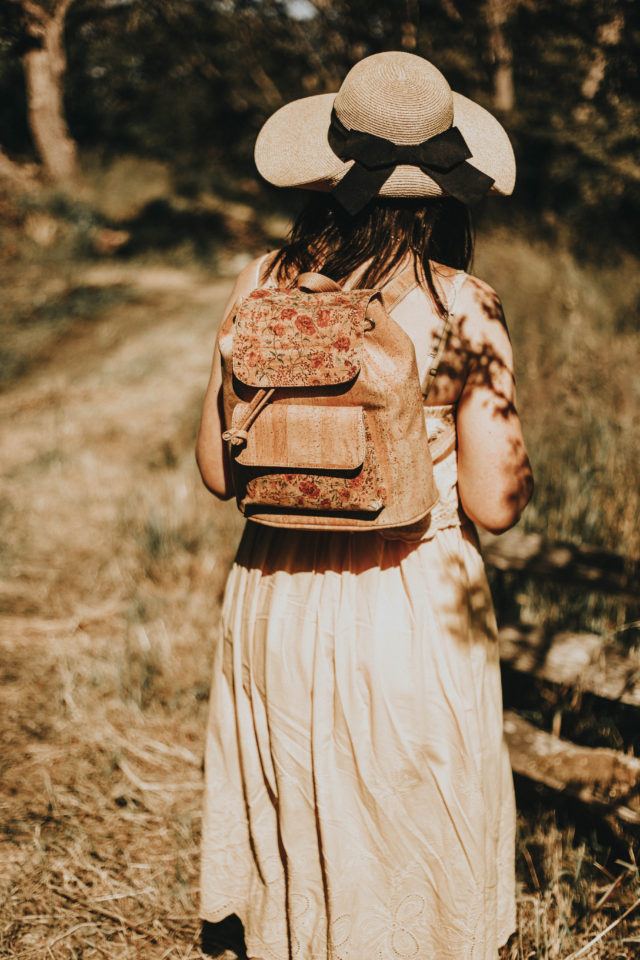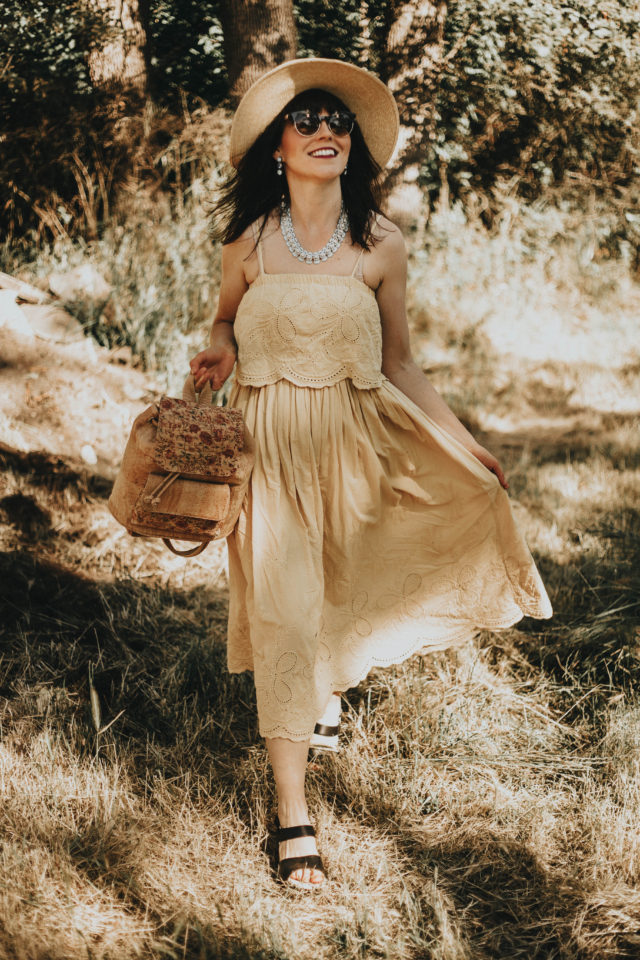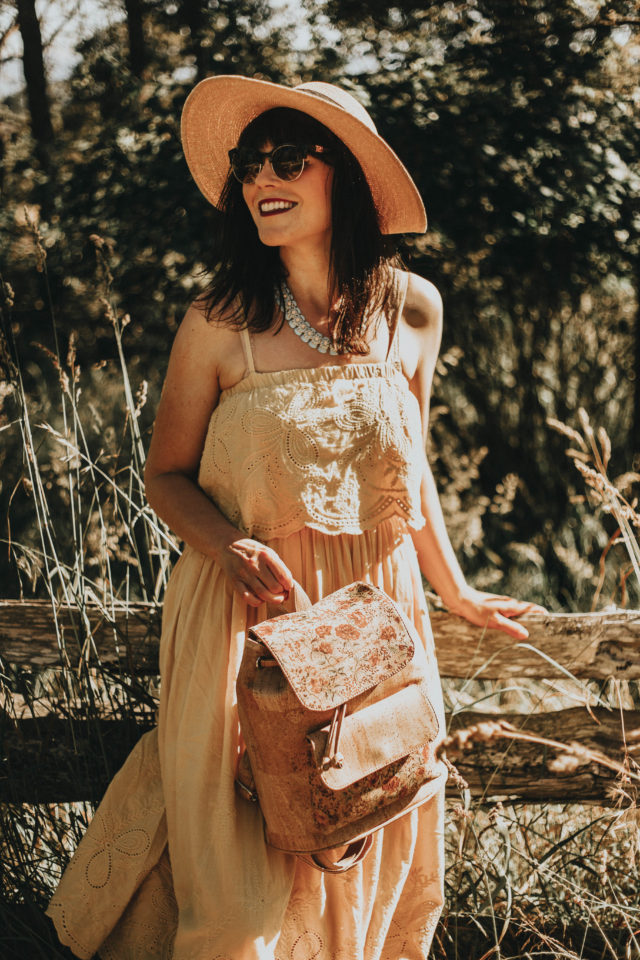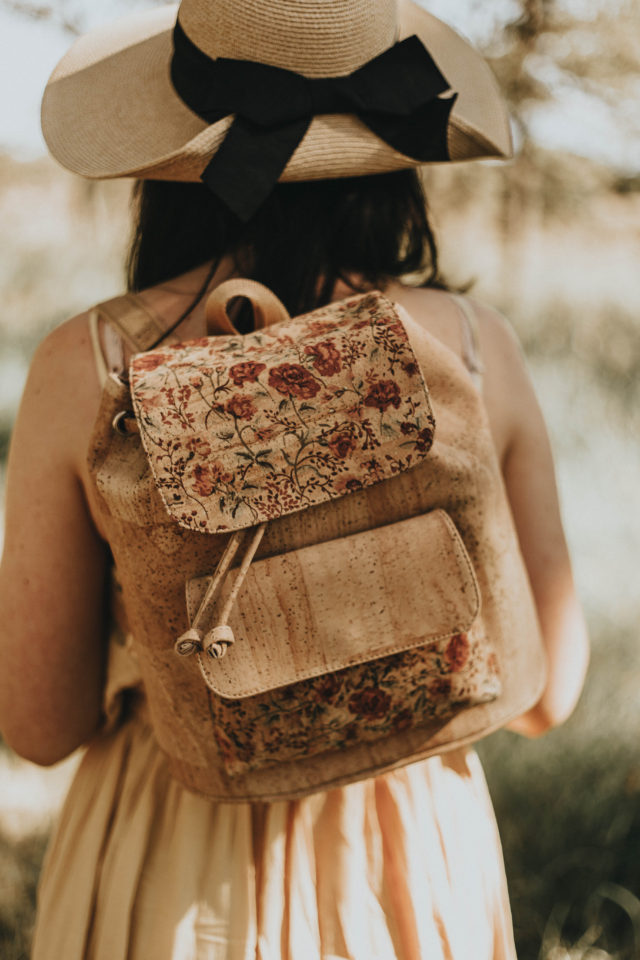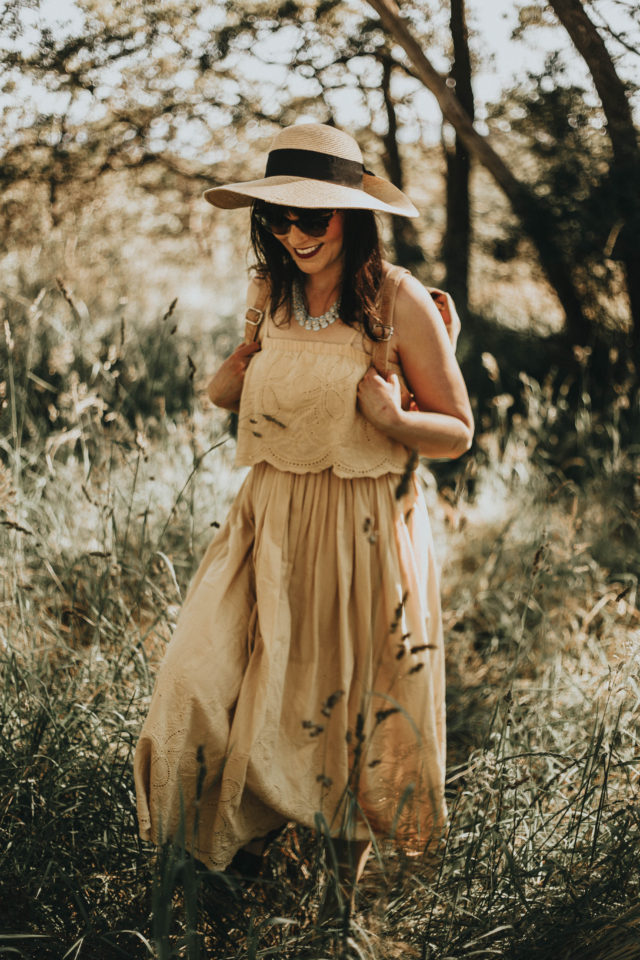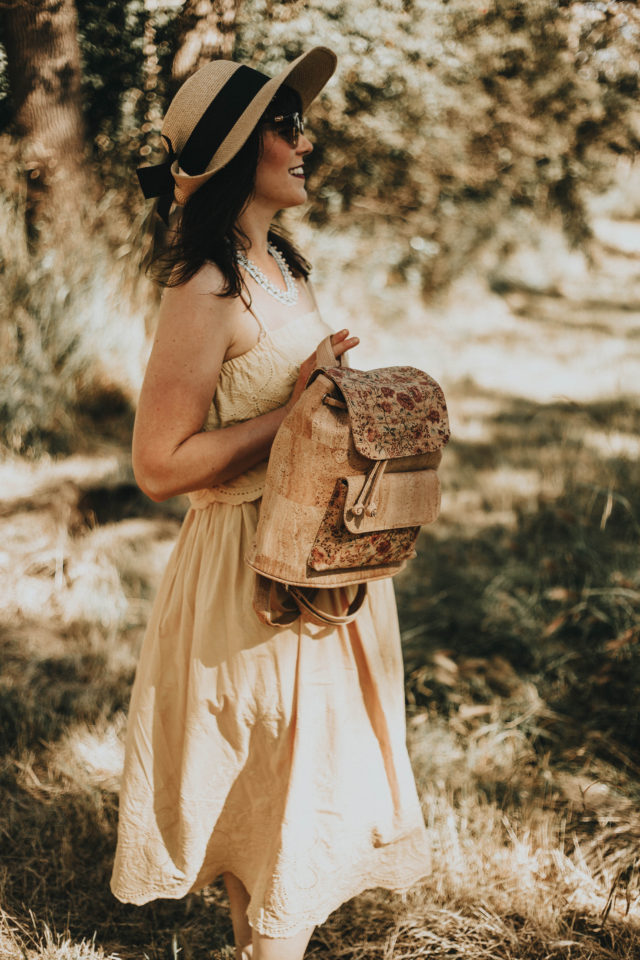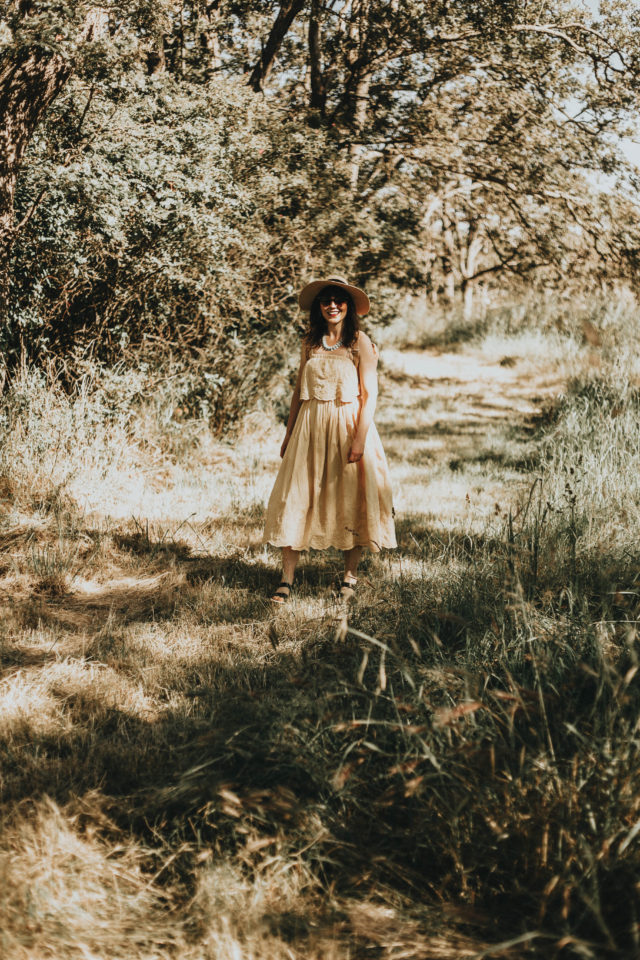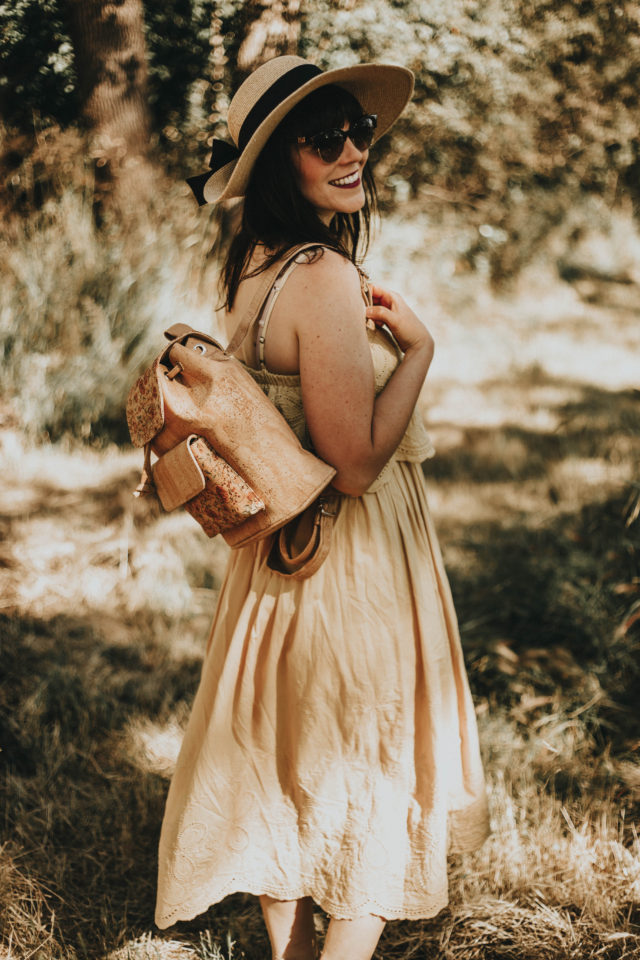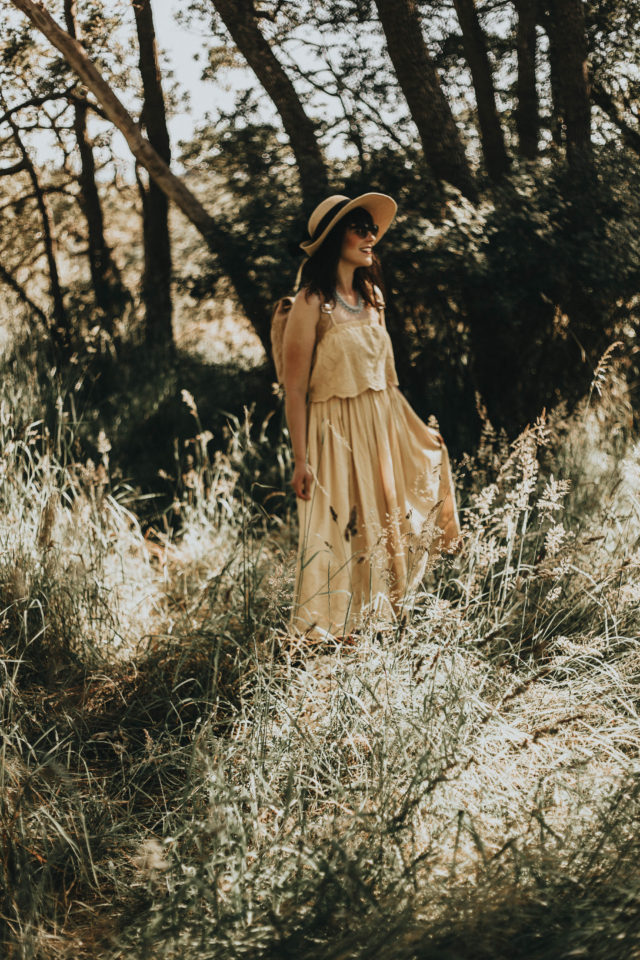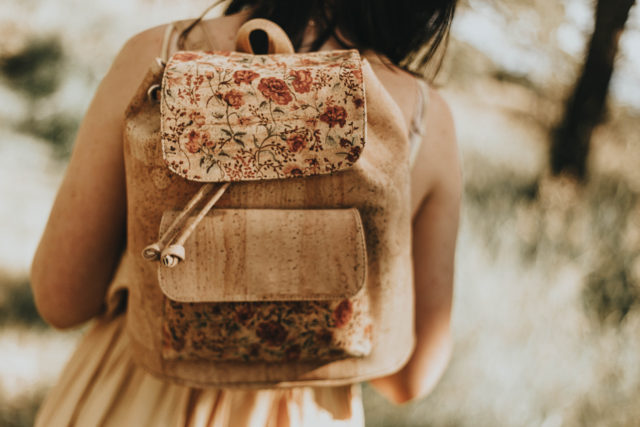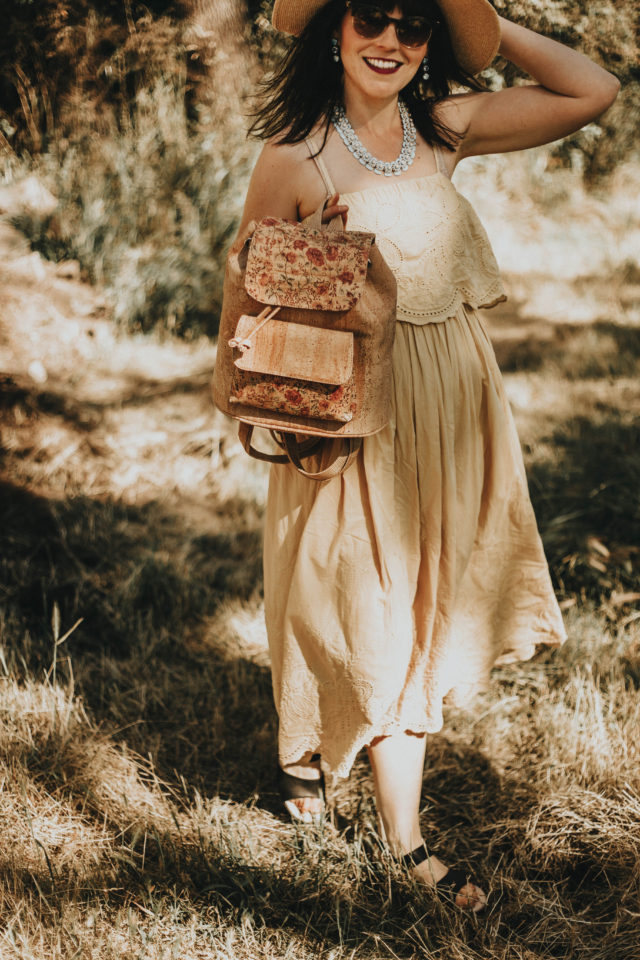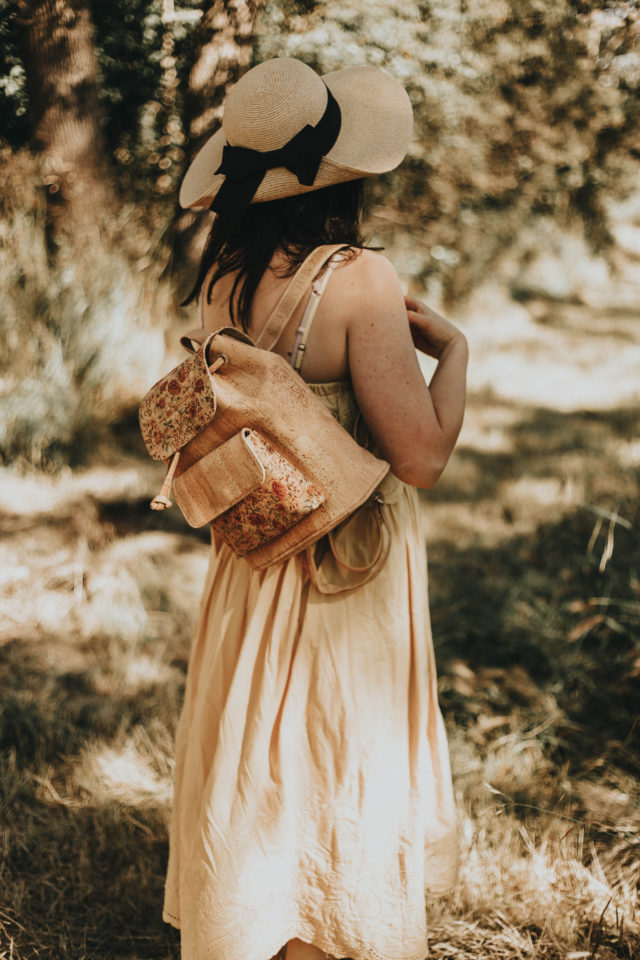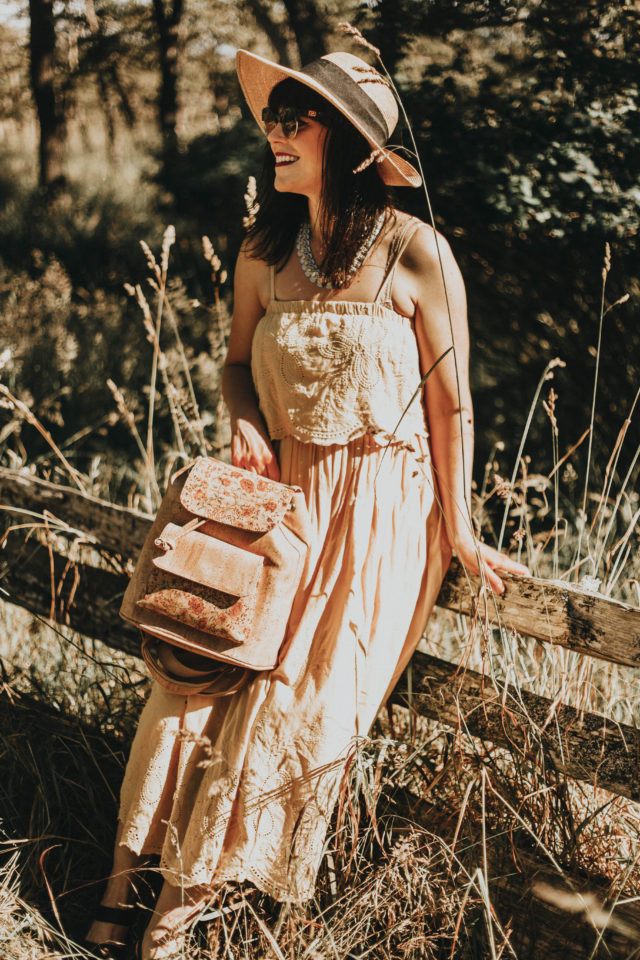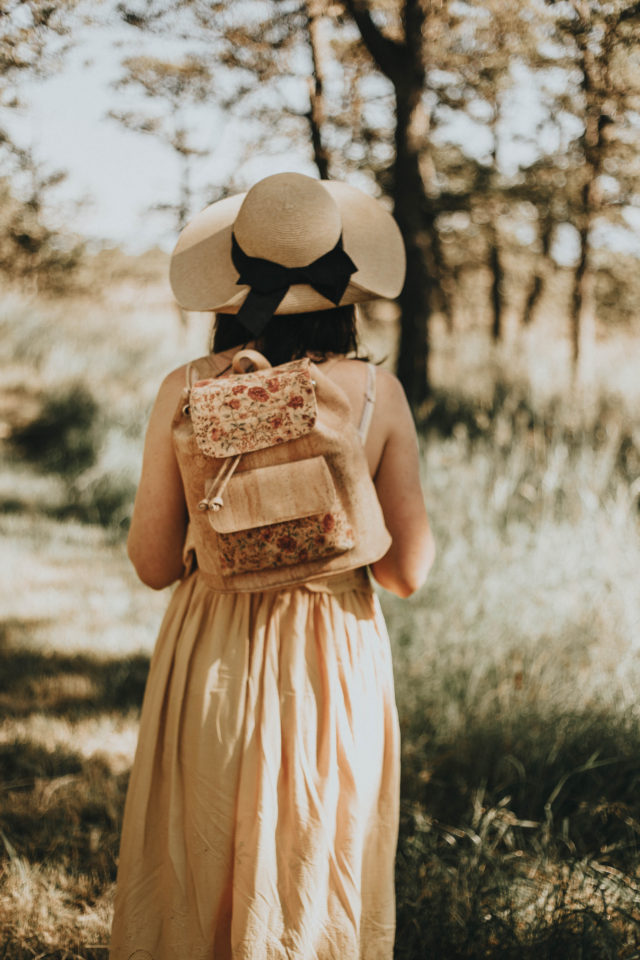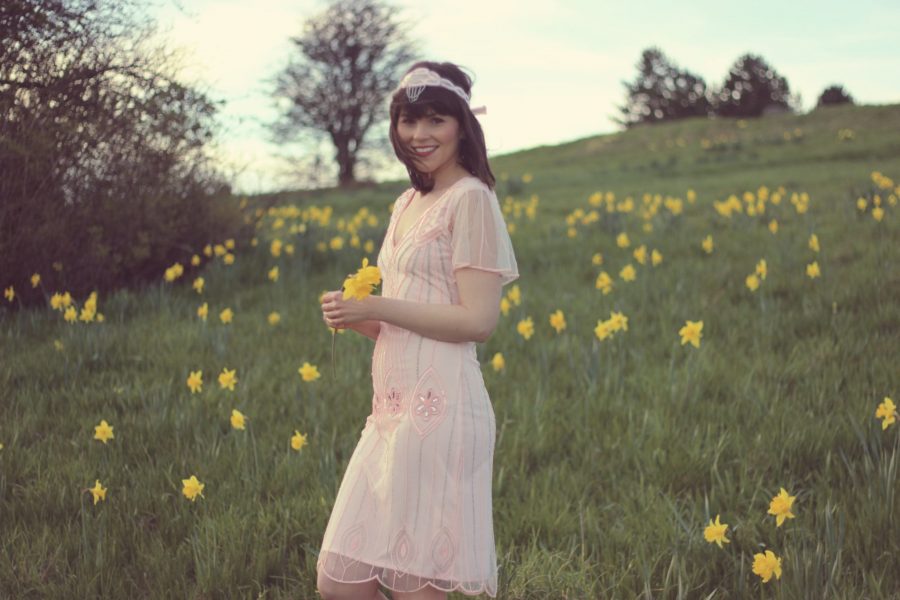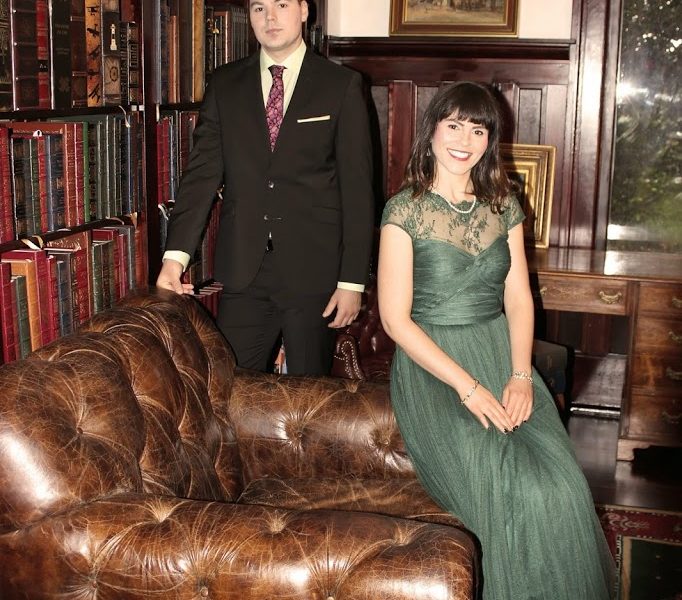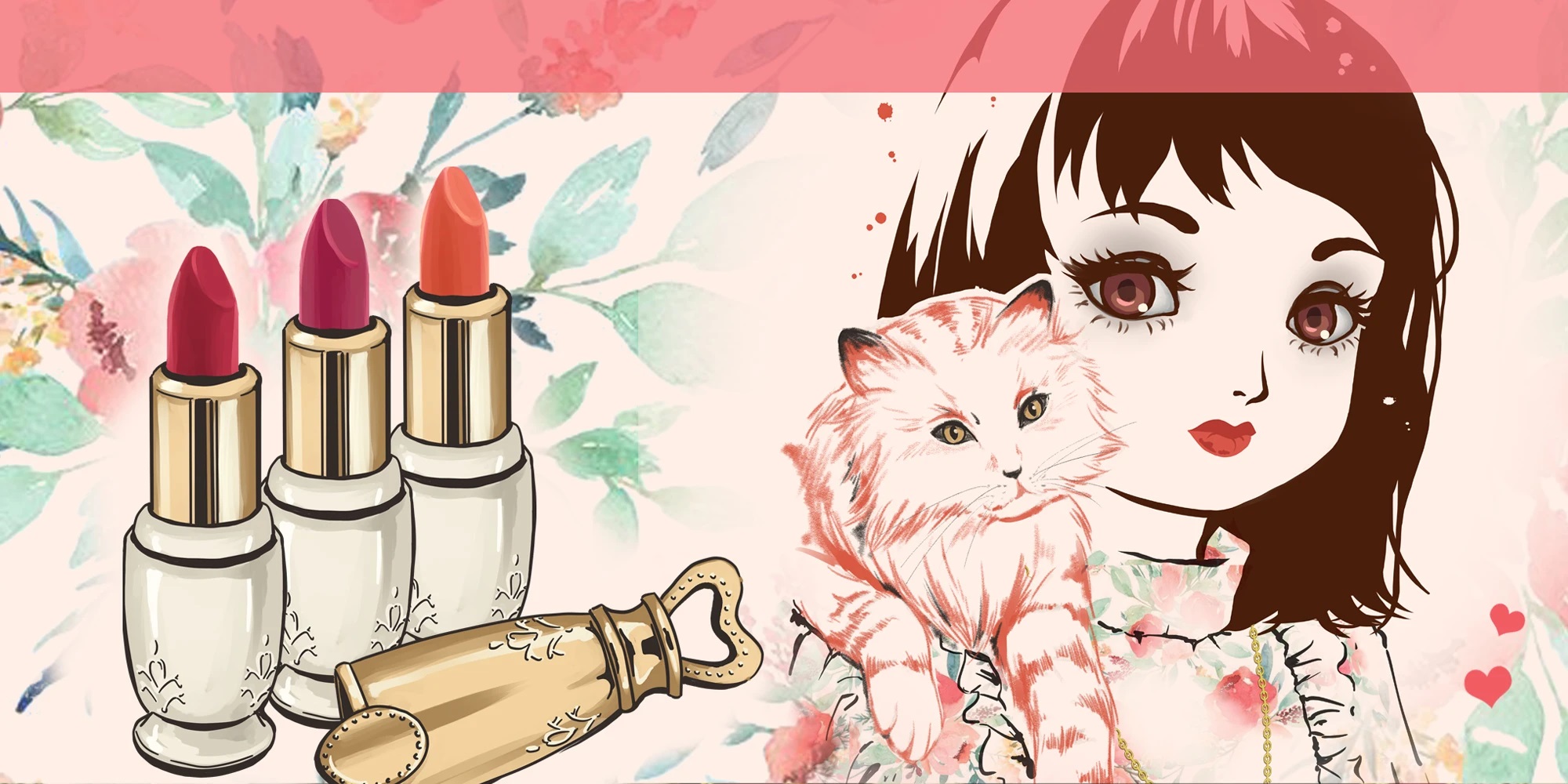Ever since I started my job at WIN a few months ago, I noticed how much waste there was in the fashion industry. I will go through bags and bags of donated clothes in search of that perfect vintage gem, and the rest gets sent to a textile mill. I have become more interested in vintage fashion as well as sustainable fashion because of this. When you see bags and bags of clothing being donated by the same fast fashion brands you slowly become turned off. I am not against wearing fast fashion, but I think just like anything in life it is good to be aware of the alternatives. Everything is all about balance in my opinion. I recently discovered the sustainable brand called Corkentric that makes sustainable bags out of cork. I didn’t know much about cork to be honest and but after reading about it on the Corkentric website, I was fascinated about how durable and sustainable it is. Corkentric combines the best of both leather and vegan leather except it is more durable, lighter and sustainable. I love this backpack because it is so light it feels like you aren’t wearing anything. It is the perfect size for my camera and works perfectly when I want to carry it around with me all day.
Use the promo code LAURAJANE to receive 10% off your first order at Corkcentric.
Why choose cork?
Simply put: Cork combines the best of both animal and vegan leathers. Except it’s lighter, more durable, sustainable, cruelty-free and ethically produced.
- Zero toxins – No toxins are used at any point in the harvesting, processing or production of cork. Once harvested, huge pieces of cork are boiled in water for ~48 hours to make them pliable. That water is filtered and reused in the future, too.
- Zero waste – Any excess cork created during production is up-cycled into thousands of different products. Once produced, cork is biodegradable, renewable and easily recycled for life.
- Harvested, never felled – Cork trees aren’t cut down. They’re harvested (as shown above) every 9 years. Multiple generations grow in the same forests, so each year sees a new harvest. This aids in global CO2 absorption. In fact, harvested cork trees absorb 3-5x more CO2 than non-harvested. In Portugal alone, cork forests offset 10+ million tons of carbon every year.
- Exploitation for good – The exploitation of cork forests is a surprisingly good thing. It means higher CO2 absorption rates and improved wildlife habitat protection. And the preservation of traditional hand skills and local farming practices. Plus the production of goods that are truly recyclable and biodegradable.
Earth’s lungs – Cork oak forests, referred to as montados, are the lungs of the environment, the economy and the society of Mediterranean countries. They play such a key role for Nature and local people that they’re protected by law. In Portugal, the largest cork oak forested area in the world, it’s the national tree and has been protected by law since the 13th century.
- Reforestation – Increased awareness of the value of cork ecosystems has sparked important initiatives in reforestation and the systematization of good practices. It’s a way of ensuring our future by being mindful of the present. As the old Portuguese proverb goes, “Whoever cares for their grandchildren, plants a cork oak.” Reforestation also conserves soil by protecting against wind erosion, increasing the filter rate of rainwater and recharging groundwater.
- Job creation – Cork is a vital source of employment at regional and rural levels. The forests practically guarantee the survival of local communities. It has been estimated that over 100,000 people in the seven Mediterranean cork-producing countries depend directly and indirectly on cork-based economies.
- Ecological balance – Careful management of cork forests brings sustainable cork production and the potential for a diverse range of goods to be harvested. A harmonious balance is maintained as a result. And, local needs are met without damaging the ecosystem. Or threatening the long-term sustainability of an important natural resource.
This post was sponsored by Corkcentric all thoughts and opinions are my own.

